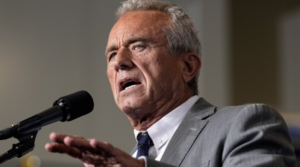The Kennedy Funding lawsuit has captured significant attention within the financial and legal sectors, serving as a case study in contractual disputes, ethical practices, and regulatory considerations. This article delves into the key aspects of the lawsuit, including the background of the case, legal issues, court proceedings, and broader implications for the commercial lending industry. By understanding the details of this case, stakeholders can draw essential lessons to guide future financial dealings.
Introduction
Kennedy Funding, Inc. (KFI) is a prominent company specializing in commercial real estate loans, particularly bridge loans. These short-term loans are designed to provide immediate financial support while borrowers secure long-term funding solutions. Despite their expertise, KFI became embroiled in a legal battle with Virgil Shelton and other parties, centered on allegations of breach of contract and fraud.The lawsuit highlights issues such as misrepresentation of property values, failure to disclose critical information, and improper loan management. It underscores the importance of transparency and ethical conduct in the lending industry, providing a cautionary tale for both borrowers and lenders.
Background of the Case

Detailed Description of the Initial Transaction Between Virgil Shelton and Willie Acklin
Virgil Shelton, owner of the Rest in Peace Cemetery in Hensley, Arkansas, sold the cemetery to Willie Acklin in 1992. The deal was structured as a promissory note and mortgage, allowing Acklin to make incremental payments over time rather than providing immediate cash.Initially, Acklin adhered to the payment terms. However, financial struggles emerged in the late 1990s due to failed business expansions and tax issues. To address these problems, Acklin sought a bridge loan from Kennedy Funding, Inc.
Role of Kennedy Funding in the Bridge Loan Process
KFI agreed to provide a bridge loan to Acklin, using the cemetery as collateral. As part of the loan approval process, KFI requested an Estoppel Certificate from Shelton to clarify the remaining mortgage obligations. This certificate was critical to ensure KFI’s loan took precedence over existing debts.Negotiations over the Estoppel Certificate became contentious, particularly as Acklin defaulted on the loan. These disputes ultimately led to the legal battle that highlighted the complexities of bridge financing and real estate transactions.
Key Legal Issues
Breach of Contract
Description of Contractual Terms and Alleged Breaches by KFI
The contractual arrangement between Shelton and Acklin involved clear obligations, including monthly and quarterly payments. When Acklin sought funding from KFI, the loan approval was contingent upon Shelton’s Estoppel Certificate, which valued the remaining mortgage at $675,000.Shelton alleged that KFI breached the terms by mishandling the escrow account meant to protect his financial interests. This breach was a pivotal point in the lawsuit, raising questions about KFI’s adherence to contractual obligations.
Explanation of the Estoppel Certificate and Its Significance
An Estoppel Certificate is a legal document used to outline existing agreements and ensure clarity in property transactions. In this case, the certificate confirmed Shelton’s outstanding mortgage and defined the conditions under which KFI’s loan could proceed. Disputes over its terms and enforcement were central to the legal conflict.
Fraud
Allegations of Fraudulent Practices by KFI
Shelton accused KFI of fraudulent practices, including false representations about the loan terms and property value. He argued that KFI’s misleading actions induced him to accept unfavorable terms, resulting in financial harm.
Details on False Representations and Nondisclosure of Material Facts
KFI was alleged to have inflated the property’s value and omitted key risks associated with the loan agreement. These misrepresentations undermined Shelton’s ability to make informed decisions and contributed to significant losses.
Unjust Enrichment and Conspiracy
Claims of Unjust Enrichment by KFI
Shelton argued that KFI benefited financially from unfair practices, enriching themselves at the expense of the borrowers. This claim emphasized the need for equitable treatment in financial transactions.
Allegations of Conspiracy Among Involved Parties
The lawsuit also alleged conspiracy, suggesting coordinated efforts by KFI and other parties to manipulate the loan agreement. These claims further complicated the case, highlighting systemic issues in the transaction process.
Court Proceedings and Key Rulings

Discovery and Pre-Trial Motions
Description of the Discovery Process and Exchange of Documents
The discovery phase involved the exchange of critical documents, including contracts, financial records, and communications. Depositions of key individuals provided additional evidence for both sides.
Summary of Pre-Trial Motions and Their Outcomes
Both parties filed motions to shape the trial, including requests to dismiss certain claims and exclude evidence. The court’s rulings on these motions narrowed the case’s focus while preserving key issues for trial.
Trial and Verdict
Key Moments and Arguments Presented During the Trial
The trial centered on breach of contract and fraud allegations. Shelton’s team presented evidence of KFI’s failure to honor the Estoppel Certificate, while KFI disputed the enforceability of the certificate and denied the fraud claims.
Initial Verdict Awarding Shelton $1.675 Million
The jury sided with Shelton, awarding him $1.675 million in damages. This verdict reflected the jury’s belief in the validity of Shelton’s claims regarding breach of contract and fraud.
Appeal Outcomes
Details on the Appeal Process and Arguments
KFI appealed the verdict, arguing that the Estoppel Certificate violated the Arkansas Statute of Frauds and that evidence of fraud was insufficient.
Outcome of the Appeal: Reduction of the Award to $675,000
The appellate court upheld the breach of contract ruling but dismissed the fraud claims due to lack of evidence. The damages were reduced to $675,000, reflecting only the contractual breach.
Implications of the Lawsuit
For Borrowers: Lessons on Due Diligence and Understanding Loan Agreements
Borrowers must thoroughly understand loan terms and seek professional advice to avoid financial pitfalls. This case underscores the risks of inadequate due diligence.
For Lenders: Importance of Transparency and Adherence to Ethical Practices
Lenders must maintain transparency and uphold ethical standards to build trust and avoid legal disputes. Misrepresentation and nondisclosure can lead to reputational and financial harm.
Industry Impact: Potential for Increased Regulatory Scrutiny and Changes in Standards
This case may prompt stricter regulations and industry guidelines, emphasizing transparency and accountability in commercial lending practices.
Lessons Learned
Transparency and Ethical Conduct
Transparency in financial transactions fosters trust and prevents disputes. Ethical practices are essential to maintaining industry integrity.
Contractual Obligations and Due Diligence
Parties must understand and fulfill contractual terms. Careful review of agreements protects against unintended obligations.
Regulatory Scrutiny
Regulatory reforms inspired by this case may strengthen borrower protections and enhance lending practices.
Broader Implications
Legal Precedents
This case may influence future litigation by clarifying the enforceability of financial agreements and handling of breach of contract claims.
Investor Confidence
Legal disputes can erode trust in lending institutions, prompting investors to demand greater transparency and stricter oversight.
Industry Practices
Lenders may adopt more rigorous standards to avoid similar issues, improving fairness and reliability in the industry.
Summary
The Kennedy Funding lawsuit revolves around allegations of breach of contract, fraud, and unjust enrichment involving Kennedy Funding, Inc. (KFI), Virgil Shelton, and other parties. KFI, a company specializing in bridge loans, provided a loan to Willie Acklin for restructuring finances using a cemetery owned by Shelton as collateral. Disputes arose when KFI allegedly failed to adhere to the agreed-upon terms of the loan, particularly regarding the management of an Estoppel Certificate that outlined mortgage obligations.Shelton accused KFI of breaching the contract, engaging in fraudulent practices by misrepresenting property values, and failing to disclose material facts about the loan. The lawsuit resulted in an initial jury verdict awarding Shelton $1.675 million, which was later reduced to $675,000 on appeal. The case has highlighted the importance of transparency, ethical practices, and adherence to contractual obligations in the commercial lending industry.
FAQs
1. What is the Kennedy Funding lawsuit about?
The lawsuit involves allegations of breach of contract, fraud, and unjust enrichment against Kennedy Funding, Inc. The case centers around disputes over a bridge loan provided by KFI and their handling of contractual obligations and financial disclosures.
2. Who are the key parties involved?
The key parties include:
Kennedy Funding, Inc. (KFI): The lender providing the bridge loan.
Virgil Shelton: The original owner of the collateral property, Rest in Peace Cemetery.
Willie Acklin: The borrower who sought the loan from KFI.
3. What is an Estoppel Certificate, and why was it significant in this case?
An Estoppel Certificate is a legal document that outlines obligations and rights associated with a property. In this case, it confirmed the remaining mortgage amount owed to Shelton and was critical in determining KFI’s loan conditions. Disputes over its terms were central to the lawsuit.
4. What were the main allegations against Kennedy Funding?
The main allegations were:
Breach of Contract: Failing to adhere to terms outlined in the Estoppel Certificate.
Fraud: Misrepresenting property values and withholding crucial information about the loan.
Unjust Enrichment: Benefiting financially through unfair practices at the expense of the borrowers.
5. What was the outcome of the lawsuit?
The jury initially awarded Shelton $1.675 million in damages. However, after an appeal, the fraud claims were dismissed, and the damages were reduced to $675,000, covering only the breach of contract.
6. What are the broader implications of the case?
The lawsuit highlights:
The need for transparency and ethical practices in lending.
The importance of understanding and fulfilling contractual obligations.
The potential for increased regulatory scrutiny in the commercial lending industry.
7. What lessons can borrowers learn from this case?
Borrowers should:
- Conduct thorough due diligence.
- Seek professional advice to fully understand loan agreements.
- Ensure transparency and clear communication in financial dealings.
8. How has the case impacted the lending industry?
The case has prompted discussions about stricter regulations, improved ethical standards, and the adoption of better industry practices to prevent similar disputes in the future.This summary and FAQ provide a concise understanding of the Kennedy Funding lawsuit and its implications for the financial and legal sectors.
Stay connected for more updates and notifications: HD 4 Hub!




